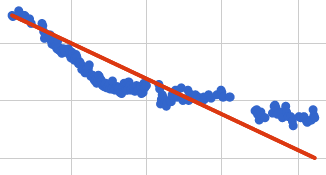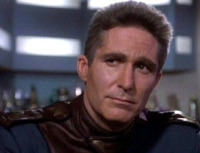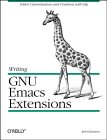It’s pretty workaday, people don’t seem to realize: You get up, you take a shower, you read the paper, you play Mulder.
I understand the impulse to demystify one’s profession, really. It’s embarrassing to be venerated by awestruck laymen. Modesty compels the likes of Duchovny and me to draw back the curtain and expose the workings of the machine — to prove that anyone could do what we do, it’s simply a matter of electing to.
Even though I have the impulse to demonstrate that to others, it turns out I don’t actually believe it myself. Not when it comes to acting, anyway. I find good acting to be mystifying, and actors themselves intimidating, be they never so humble.
There was a time when I thought I wanted to be an actor. In high school my new classmate Cynthia was one. She appeared in Afterschool Specials on TV, and in the 1980 movie Little Darlings (among much else later on). Although I wouldn’t have admitted it then, I was awestruck. I cluelessly pestered her for her agent’s name and contact info, so I could send a head shot and be discovered. When a talent scout visited our school once, hunting for someone to be the lead in My Bodyguard, I managed to insert myself in the interview schedule, and was peeved when they showed more interest in my best friend Chuck than in me.
Years later I realized it wasn’t acting I wanted to do. I simply wanted others to be as impressed with me as I was with Cynthia. I was jealous of my own feelings about her!
I should have known that my supposed desire to act was misguided when my close friend Andrew began showing signs of being a talented actor himself. Although I was his performing cohort on a few memorable occasions — we co-founded our school’s repertory group together with a few other friends and had a popular comedy act on the side — none of what I was doing was real acting (it was reading lines and playing for laughs), whereas when Andrew performed, he disappeared into his role, and it pretty well freaked me out. When he became a country bumpkin, or a Victorian gentleman, or a brash uncle, or an elderly Jew, it seemed to me there was no trace left of my friend. When we hung out together he would sometimes switch personalities and become someone I didn’t know how to relate to, exhibiting behaviors and emotions I knew weren’t Andrew’s. I was exactly as uncomfortable around him at such times as if a total stranger began emoting at me. In college I had another friend, Amy, a drama major, who had the same unsettling ability to abandon her usual demeanor on a whim and adopt an alternate one, fully realized.
I’ve often wondered why I’m so disconcerted by the abilities of actors. I think it must have to do with the fact that emotions are the raw materials of their craft. When I was young I was never especially comfortable with emotions, mine or others’. I was raised on 60’s cool; I identified with Mr. Spock. I suspect that for much of my youth I would have denied having very many emotions at all (evidence to the contrary notwithstanding), and would have considered that laudable. I became a computer programmer, and not without reason. Computers can be instructed with precision and always respond predictably — exactly the opposite experience of dealing with people and their emotions.
From time to time my emotions would get the better of me. An unrequited crush could send me into a tailspin for weeks. Feelings were to be feared and kept under control. But actors! Actors are so at ease in the world of feelings that they put theirs on display. They change them on demand, and make sport with them! Confronted with such mastery of such dangerous stuff, I felt like the caveman who peers into a rival cave and is terrified to discover fearless tribesmen putting food into fire and then eating it!
Of course I’ve enjoyed good acting all my life; it’s only when the actor is known to me, and the alchemical transformation happens before my eyes, that I’m flustered. It’s less true today than in the past. I’m older now and, like Old Spock, have come to grips a little better with my own emotional life. But I’m still mistrustful of feelings, which control me more than I control them, so my inclination still is to keep them submerged. I therefore continue to be mystified and impressed and, yes, a little frightened by those who are not only able but willing to surface their feelings, to shape them and amplify them to create performances — that can, in turn, affect my own.

 As a junior, late in 1982, a few friends and I felt the urge to write and perform a collection of short one-act plays. With faculty help we ended up founding The Brick Prison Playhouse (so called because the school’s appearance earned it the affectionate nickname “the brick prison”), a repertory group for performing student-written plays, as opposed to the existing repertory groups that performed established plays and musicals.
As a junior, late in 1982, a few friends and I felt the urge to write and perform a collection of short one-act plays. With faculty help we ended up founding The Brick Prison Playhouse (so called because the school’s appearance earned it the affectionate nickname “the brick prison”), a repertory group for performing student-written plays, as opposed to the existing repertory groups that performed established plays and musicals. It was a line spoken by Michael O’Hare as Jeffrey Sinclair in Babylon 5. I have used that sentiment a few times since then as a way to gauge my readiness for something — starting a family, for instance. If I can’t say that line with conviction I know I’m kidding myself.
It was a line spoken by Michael O’Hare as Jeffrey Sinclair in Babylon 5. I have used that sentiment a few times since then as a way to gauge my readiness for something — starting a family, for instance. If I can’t say that line with conviction I know I’m kidding myself.
